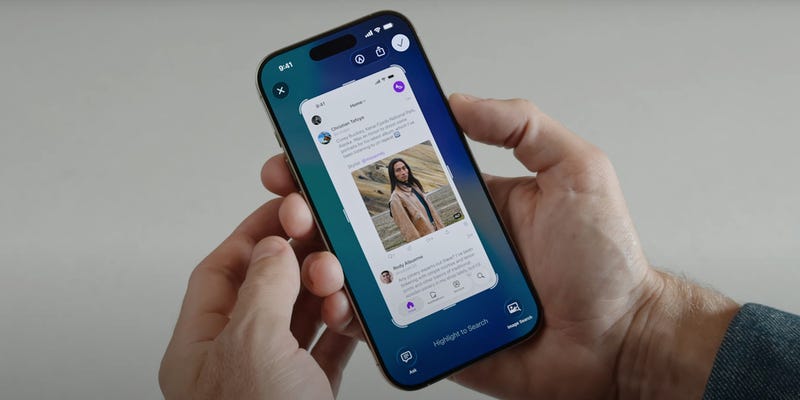The four-minute segment was likely intended as a response to doubts surrounding Apple’s progress in generative artificial intelligence. But it came across more as an admission of failure. To kick off Monday’s WWDC keynote, Craig Federighi, its senior vice president of software engineering, took the opportunity to list every AI feature released on iOS in recent months.
In reality, the list mostly served as a reminder of the huge gap between the Cupertino company — still finding time to highlight tools that are at best conventional and at worst entirely trivial — and the rest of the sector. A few improvements were indeed unveiled, but the new version of Siri, which was supposed to be at the heart of Apple’s initial promises, was mentioned only briefly. And for good reason: its launch has been postponed.
Modest updates
Last year, Apple dedicated nearly half of the WWDC keynote, its annual developer conference, to Apple Intelligence, a suite of features aimed at ushering the iPhone into the age of generative AI. This year, the company settled for modest updates, such as an instant translation tool and the ability to search for items displayed on the screen. The headline announcement was the rollout this fall of a new graphical interface across its operating systems.
The contrast with Google is stark. At its I/O conference in late May, the search giant made a flurry of AI announcements — so many that Android was relegated to a secondary presentation. Its main rival is no longer Apple, but OpenAI.
Needless to say, Monday’s presentation did little to reassure skeptics, particularly on Wall Street, who question Apple’s ability to remain competitive in the AI race. The next major milestone is the evolution of Siri. Originally expected in April, the overhaul of the voice assistant, announced with great fanfare a year ago, will not arrive before the next iOS release, this fall alongside the new iPhones.
Internal reorganization
The new Siri may not even launch until an update in early 2026, as the company might opt to start from scratch. The most advanced features might not be released until 2027. “This work needed more time to reach our high quality bar,” Craig Federighi simply explained.
Acknowledging these challenges, Tim Cook initiated an internal reorganization in late March, removing Siri development responsibilities from John Giannandrea, Apple’s head of AI. The project was handed over to Mike Rockwell, a hardware engineer known for successfully managing complex projects. He now faces the challenge of overcoming two major constraints imposed by Apple.
First, the decision to develop its own language models, rather than relying on existing ones as other smartphone makers do. Second, the commitment to run the new Siri locally — using the iPhone’s processor without offloading computations to the cloud. For now, however, Apple’s difficulties are more of a reputational issue than a true commercial problem.




